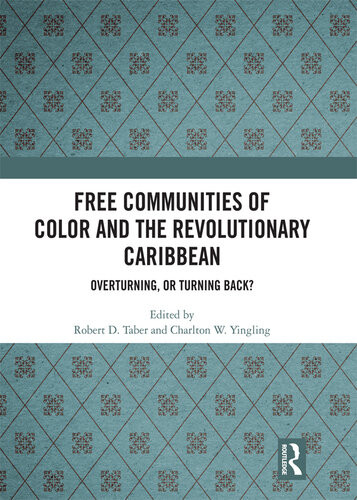

Most ebook files are in PDF format, so you can easily read them using various software such as Foxit Reader or directly on the Google Chrome browser.
Some ebook files are released by publishers in other formats such as .awz, .mobi, .epub, .fb2, etc. You may need to install specific software to read these formats on mobile/PC, such as Calibre.
Please read the tutorial at this link: https://ebookbell.com/faq
We offer FREE conversion to the popular formats you request; however, this may take some time. Therefore, right after payment, please email us, and we will try to provide the service as quickly as possible.
For some exceptional file formats or broken links (if any), please refrain from opening any disputes. Instead, email us first, and we will try to assist within a maximum of 6 hours.
EbookBell Team

5.0
40 reviewsThe tumult of the Age of Atlantic Revolutions provided new opportunities for free communities of color in the Caribbean, yet the fact that much scholarship places an emphasis on a few remarkable individuals-who pursued their freedom and respectability in a high-profile manner-can mask as much as it reveals. Scholarship on these individuals focuses on themes of mobility and resilience, and can overlook more subversive motives, underrepresent individuals who remained in communities, and elide efforts by some to benefit from racial hierarchies. In these free communities, displays of social, cultural, and symbolic capitals often reinforced systemic continuity and complicated revolutionary-era tensions among the long-free, enslaved, and recently-freed.
This book contains seven fascinating studies, which examine Haiti, Caracas, Cartagena, Charleston, Jamaica, France, the Netherlands Antilles, and the Swedish Caribbean. They explore how free communities of color deployed religion, literature, politics, fashion, the press, history, and the law in the Atlantic to defend their status, and at times define themselves against more marginalized groups in a rapidly changing world.
This volume demonstrates that problems of belonging, difference, and hierarchy were central to the operation of Caribbean colonies. Without recalibrating scholarship to focus on this, we risk underappreciating how the varied motivations and ambitions of free people of color shaped the decline of empires and the formation of new states. This book was originally published as a special issue of Atlantic Studies.